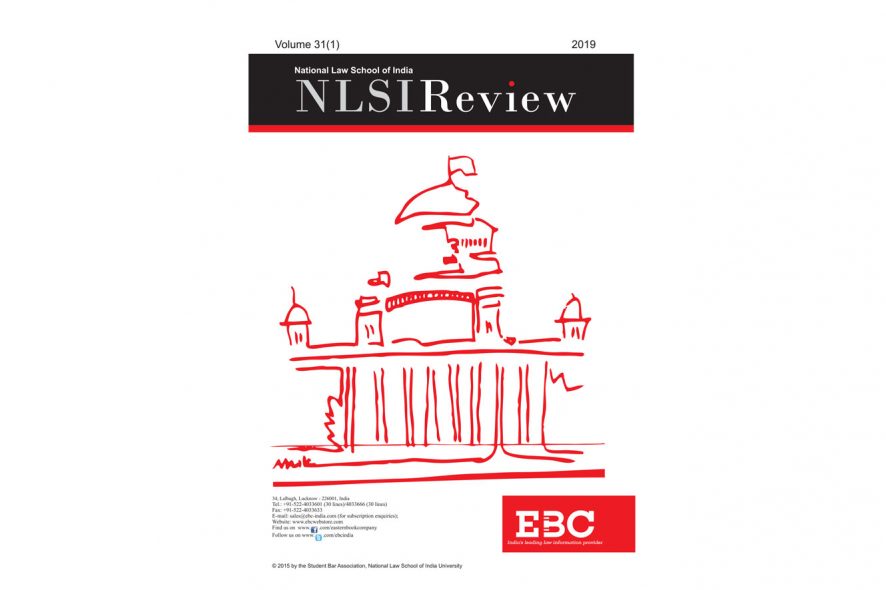NLSIR is the flagship law journal of the National Law School of India University, Bangalore. In its 33rd year now, the NLSIR is a bi-annual, student-edited, peer-reviewed law journal, which holds the distinction of being the first Indian student-run law journal to be cited by the Supreme Court of India, in its decision in Action Committee, Unaided Private Schools v. Director of Education. Notably, we have also been cited recently in the Supreme Court’s landmark judgment, Justice K.S. Puttaswamy v. Union of India, (2019) 1 SCC 1 which established the Fundamental Right to Privacy in India. NLSIR has also been recently cited in Justice R. S. Bachawat’s Law of Arbitration and Conciliation, a leading treatise on arbitration law in India.
To further our aim to encourage legal writing, provide inclusive legal scholarship, and contribute to issues at the forefront of contemporary legal discourse, the Board of Editors is inviting submissions for its forthcoming Volume 33, Issue 1.
Submission Guidelines
- All contributions submitted to the NLSIR should be original, and should not have any plagiarized content.
- By submitting contributions to NLSIR, the author(s) confirms that the manuscript is not being simultaneously considered for publication elsewhere (online or print).
- Pieces with relevance to India or Indian law are particularly welcome. This, however, is not a prerequisite.
- Submissions are accepted for the following categories:
- Long Articles: Between 5,000 and 10,000 words. Papers in this category are expected to engage with the theme and literature comprehensively, and offer an innovative reassessment of the current understanding of that theme. It is advisable, though not necessary, to choose a theme that is of contemporary importance. Purely theoretical pieces are also welcome.
- Essays: Between 3,000 and 5,000 words. Essays are more concise in scope. These papers usually deal with a very specific issue and argue that the issue must be conceptualized differently. They are expected to make an easily identifiable and concrete argument.
- Case Notes and Legislative Comments: Between 1,500 and 2,500 words. Case Notes are expected to analyse any contemporary judicial pronouncement, or a new piece of legislation, whether in India or elsewhere. The Note must identify and examine the line of cases in which the decision in question came about, and comment on implications for the evolution of that branch of law. In case of Legislative Comment, the Note must analyse the objective of the legislation, and the expected legal impact.
- Book Reviews: Between 2,000 to 3,000 words.
The journal is flexible regarding the word count depending on the quality of the submission. All word limits are exclusive of footnotes.
Formatting Guidelines
- The body of the manuscript should be in Times New Roman, font size 12 with 1.5 line spacing. The footnotes should be in Times New Roman, font size 10 with single line spacing.
- The manuscript should contain only footnotes (and not endnotes) as a method of citation. Citations must conform to OSCOLA (Oxford University Standard for the Citation of Legal Authorities) (4th) style of citation.
- Authors are required to adhere to the NLSIR Style Guide which can be found here.
Submission Procedure
Submissions may be emailed to mail.nlsir@gmail.com under the subject “33(1) NLSIR – Submission”. All submissions must contain the following:
- The manuscript in a .doc or .docx format. The manuscript should not contain the name of the author, their institutional affiliations, or any other identification markers. The title of the manuscript should indicate the sub-theme that the author(s) have chosen.
- A separate cover letter in a .doc or .docx format, containing the Name of the author, Professional Information, Title of the manuscript, and Contact information.
- An abstract of not more than 150 words.
General Information
- The deadline for submissions is October 30th, 11.59 PM.
- Co-authoring of papers among individuals of the same or different institutions is permissible, for a maximum of three authors.
- Upon submission, every manuscript will undergo two internal reviews by the Board of Editors. If approved in both the rounds, it is subject to a double-blind peer review process.
- We hope to update authors on the submission within 4 weeks of their submission.
Contact
For more information, please visit www.nlsir.com. For queries, write to us at mail.nlsir@gmail.com.






